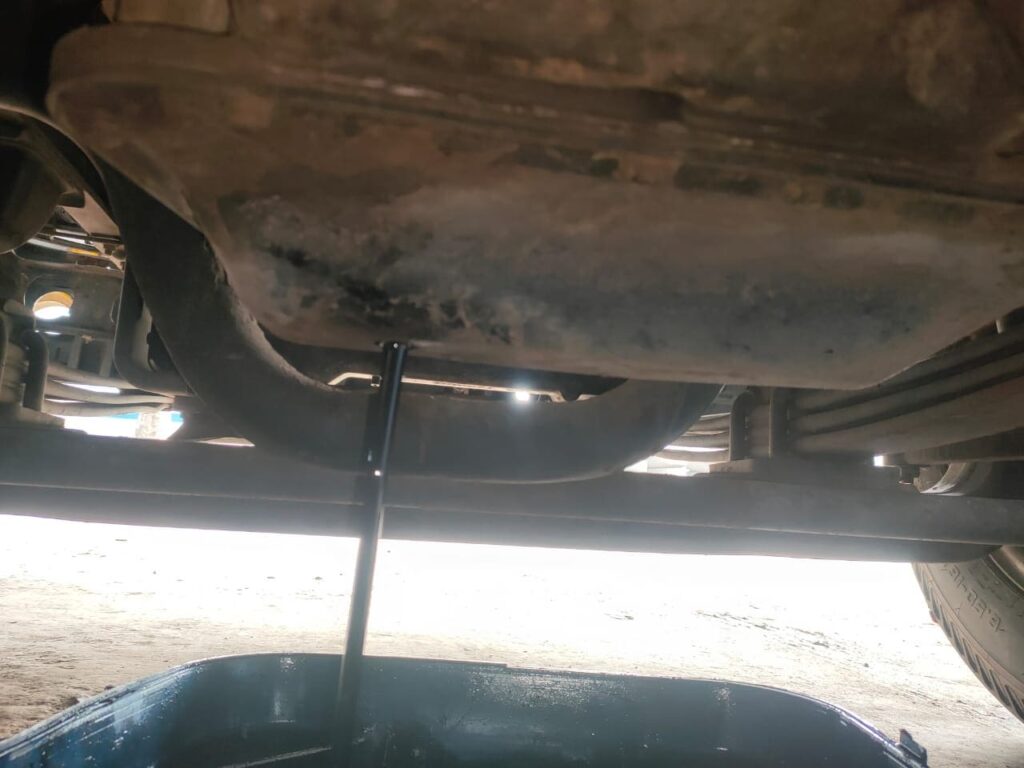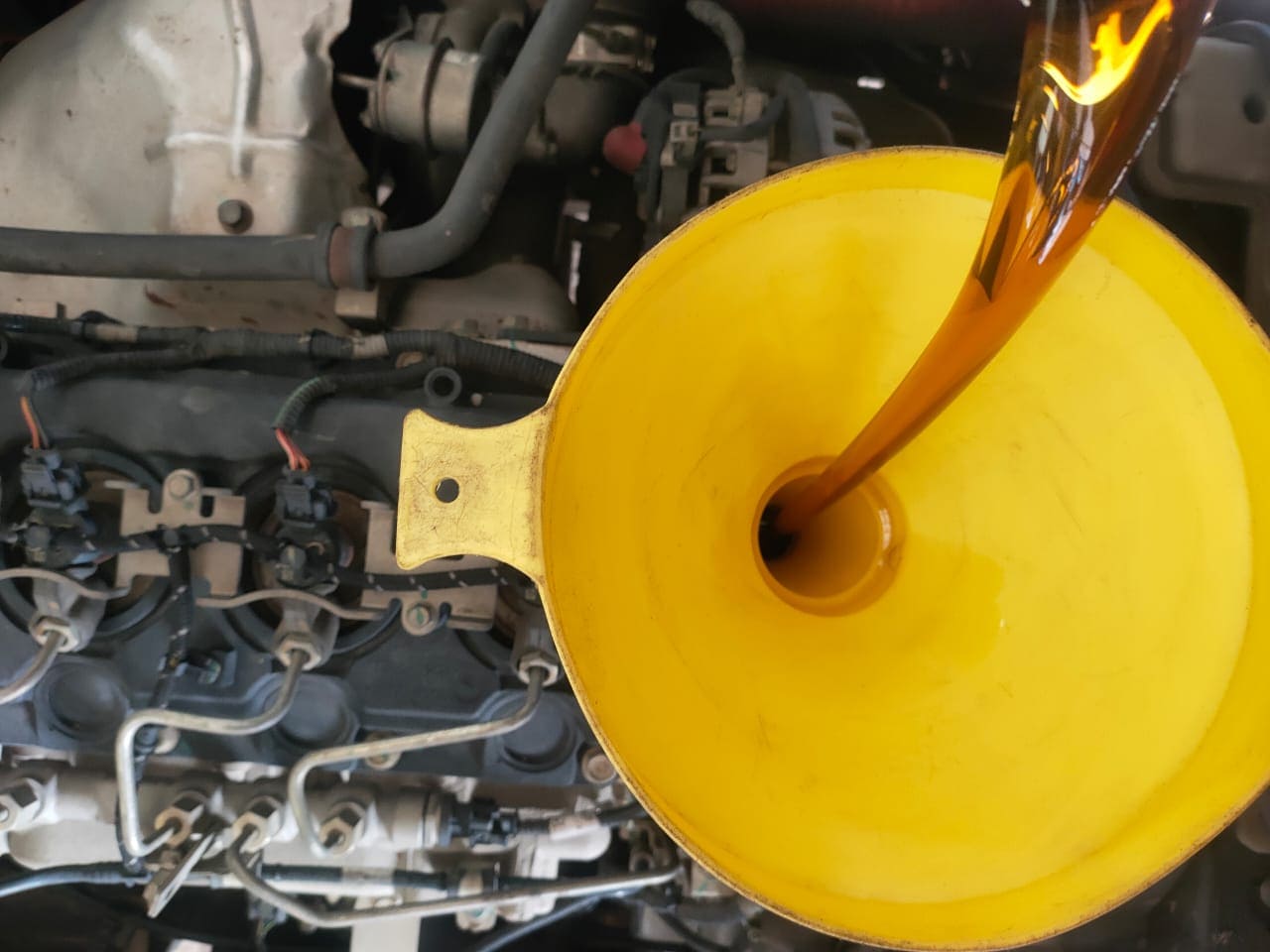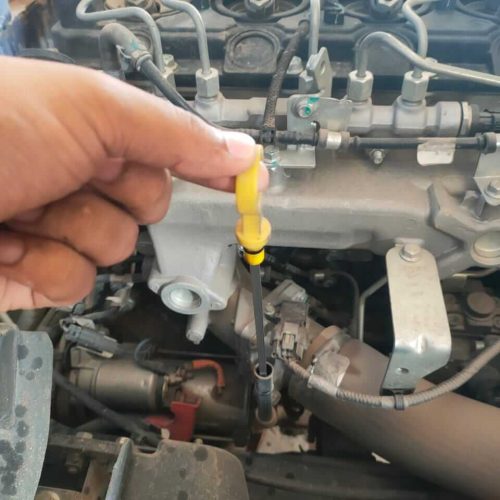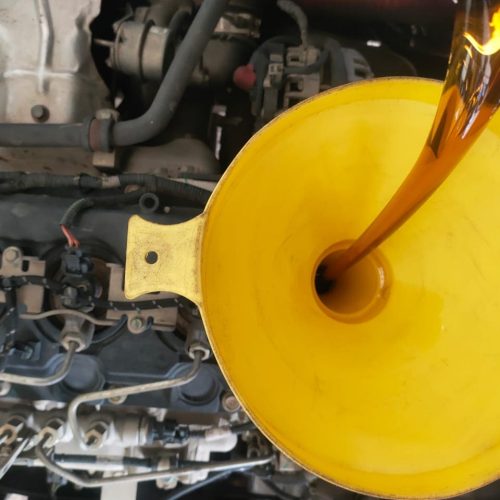Learn about the advantages of diesel oil change and how you can improve your vehicle’s performance. If you are not sure about the necessity of this simple maintenance activity, you have to discover that an oil change is a necessary operation for diesel engines. This measure should be taken on a regular basis so that you do not forget the way in which you can improve and extend the life of your engine.
Conducting an oil change is a process of removing the used lubricant and adding more to the system. The oil has an essential purpose to be the primary lubricant of the moving parts of the engine to minimize friction and temperature increase. You should follow manufacturer’s guidelines to ensure your diesel engine is maintained properly and works effectively. If you do not want to wear out your engine more excessively, reduce fuel efficiency, and pay more for additional repairs, you should make oil changes on a regular basis. As a result, the oil change for diesel is a crucial operation and should not be ignored.
Signs It’s Time For An Oil Change
Regular oil changes are essential to the health of your diesel engine. Here are some signs that you need to perform the change:
- Increase in engine noise — the longer your diesel engine goes without a change, the more old and dirty the oil present in it becomes. It can no longer effectively lubricate the engine’s moving parts, a condition that is amplified further by days or weeks of non-use. If you hear the din of an excessively noisy engine, it’s likely due for an oil change.
- Dark or dirty oil on dipstick — this is a simple indicator of when to change your diesel oil. If the oil on the dipstick is no longer clear or dark in color, it is saturated with contaminants and can no longer protect the engine.
Choosing The Right Diesel Engine Oil
It is important to choose the right engine oil in order to maintain diesel engine. Here is the reason why diesel engine are different: they differ from gasoline engines by requiring a distinct type of oil to help ensure that they run as efficiently as possible for as long as possible.
Viscosity Ratings
Viscosity is one of the most important factors in choosing an oil for diesel engine use. In other words, diesel engine oil must be thick enough so that the engine must flow or pour easily at relatively low temperatures. The standards are typically reflected in SAE( Society of Automotive Engineers). Viscosity is graded with two different number. The most common viscosity ratings for diesel engines were as follows: 15W-40, 10W-30, and 5W-40.
The first number of the rating — for example, 15W — shows how smoothly the oil can be pumped in the engine in severe frosts. The smaller the value, the easier the oil can resist thickening in the cold. Accordingly, “W” stands for winter. The second value — for example, 40 — characterizes the viscosity of the oil at a high temperature. The higher the number, the denser the oil is at high temperatures. Therefore, it is necessary to purchase an oil with a suitable level of viscosity for correct lubrication and the ability to flow at high temperatures, as well as when the lubricant is cold.
| Viscosity Rating | Recommended Temperature Range |
| 15W-40 | Most common and suitable for a wide range of temperatures |
| 10W-30 | Best for people who live in moderate climates and drive their cars daily |
| 5W-40 | Best for very cold to very hot climates and high-performance diesel engines. |
Synthetic Vs. Conventional Oils
Finally, beyond the recommended oil viscosity, you may also have to choose between synthetic and conventional oils. Generally, synthetic oil for diesel engines works better than its standard or conventional counterpart.
The most significant selling point of the former is that they are designed to provide a high level of performance and protect your engine under any circumstance. On the whole, synthetic oil comes with better viscosity stability, less oxidation, and a higher temperature tolerance than the conventional one..
On the other hand, conventional oils are more affordable and do not provide the same level of protection and performance as synthetic oils. They are suitable for regular driving conditions and moderate temperatures. However, synthetic oils are highly recommended if you frequently tow heavy loads, live in extreme weather conditions, or have a high-performance diesel engine.
Moreover, per the diesel engine manufactures, the use of synthetic oil is required to maintain the engine warranty. Therefore, to ensure you are using the correct type of oil, consult your vehicle’s owner manual or a professional mechanic.
Steps To Perform An Diesel Oil Change
In order to keep your diesel engine running smoothly and ensure its performance, regular oil changes are required. Here, you can find a guide on how to perform an oil change, listing every step from the preparation and acquisition of materials and tools to draining the oil, ensuring that your engine will not suffer from any problems.
The first point in the oil change process is to gather all materials and tools. They consist of a check list such as:
- Fresh engine oil – check the suitable type and grade according to the manufacturer;
- New oil filter – relevant to the diesel engine;
- Oil drain pan – for the old oil;
- Ratchet, socket set, and/or wrench – for the drain plug and oil filter;
- Oil filter wrench – to take off the old oil filter;
- Gloves and safety goggles – to protect hands from oiling and eyes from oil spraying.
Draining And Replacing The Oil
Please let us now main steps to remove and drain the old oil from the diesel engine and replace it with a new one:
- Warm the engine up by starting it for several minutes so that the oil can become relatively thin and thus flow more easily
- Locate the oil drain plug and position the drain pan under it
- Unscrew the drain plug using a ratchet or wrench being very careful not to hurt your hands. Let the old oil drain into the pan
- As the old oil drains unscrew the old oil filter and replace it with a new one. Refer to the manufacturer’s instruction to do this You can then follow the procedure for pouring the new oil into the diesel engine.
- Fill with new oil – using a funnel, put the new engine oil into the engine making sure you use the specific amount of the diesel engine. You can check the specific amount of oil needed from the manual of your diesel engine.
- Check the level of oil – using the dipstick of the engine, ensure that you fill the oil to the required amount of level of the york401
- Dispose of the old oil – responsibly recycle the old oil by taking it to the certified collection point for recycling.

Common Mistakes To Avoid
As far as maintaining your diesel engine goes, getting regular oil changes is paramount for its performance and lifespan. However, there are several common mistakes that go unnoticed and hurt your vehicle in the process. By being aware of them, you can ensure that your oil change routine is effective..
Some of the common mistakes that people do when diesel oil change of a diesel engines, include:
- Overlooking the oil filter;
- Using the wrong oil type.
For the first mistake, this is a common one. Changing oil without changing the oil filter can cause a lot of problems over time. The dirty old oil filter can allow dirty or contaminated the oil to circulate in the engine block. Without the continuous expulsion of contaminants and debris from the oil, the performance of the diesel engine will be compromised. Lack of proper filtering will also cause the combustion chamber to breakdown prematurely.
For the second mistake, it can allow oil to fail and tear quickly. Various diesel engines may require different types of oil formulation. Usage of the wrong formulation may not assure full lubrication to the engine.
Benefits Of Regular Oil Changes
Diesel vehicles require regular oil changes as it helps the engine to perform well, achieve increased fuel economy, and extended engine life. Fresh oil reduces friction from heat and helps to prevent any major costs for the future. If you have a consistent schedule, then you can use a diesel engine for a long time.
Extended Engine Life
Your diesel engine’s life-span can directly determine how long it will stay in optimal performance. A simple and effective way to extend your engine’s life is through regular oil changes.
As your engine operates, it builds up heat and friction and causes the oil to break down. Moreover, contaminated oil, which has been subjected to several heating and cooling cycles, will result in lesser efficiency in lubrication. An insufficient amount of clean oil to lubricate and protect your engine’s moving parts may also result in excessive wear and tear. Consequently, frequent oil changes can prevent your engine’s vital parts from further damage guaranteeing your engine’s life extension. Ultimately, this eliminates the need for repairs or engine replacement, saving you the expenses.
Improved Fuel Efficiency
The friction between the many moving parts of your diesel engine can be extremely high causing any component to absorb more effort in turning with time. Oil changes ensure most of the parts remain frictionless, with the oil filter capable of catching anything that might cause a reduction in your engine’s oil pressure.
As long as the oil has been changed, the parts will be free to turn as they wish, with the oil lubricating and making the engine move more smoothly. With old oil, you can bet the complete opposite of this is what will be the case, with high chances of all these parts struggling to move without being destructed. Your engine’s pressure too rises, with anything making it heavier on the axle to turn.
Diesel Oil Change FAQs
What is the recommended diesel oil change interval for a diesel vehicle?
The standard period for the oil change in diesel vehicles is every 5,000 to 7,500 miles. However, whenever you have your vehicle’s manual guide for the process, there would be specific data considering your make and model-type.
Can I use regular oil for my diesel engine?
Yes, you can use regular motor oil. I recommend diesel oil, as it will lead to better performance and longer life. The majority of diesel engine oils are designed for high operating temperatures and pressures found in diesel vehicles.
How To Know If The Diesel Needs A Change Oil
There is some information that diesel needs a change oil such as the oil change is dark and gritty, the car becomes more noise, the fuel efficiency of the car is decreased, and some warning come on the dashboard. It is important to check the level of oil and condition frequently, and this helps to increase the lifespan of a diesel engine.
Conclusion
In conclusion, taking care of your diesel vehicle is crucial for its performance and longevity, and one of the critical maintenance procedures is regular oil changes. By keeping up with the recommended schedule, you will keep your engine clean, lubricated, and safe from the degradation of use. From reducing friction and improving fuel efficiency to preventing costly repairs and prolonging the life of your diesel machine overall, oil changes are vital for your engine.










